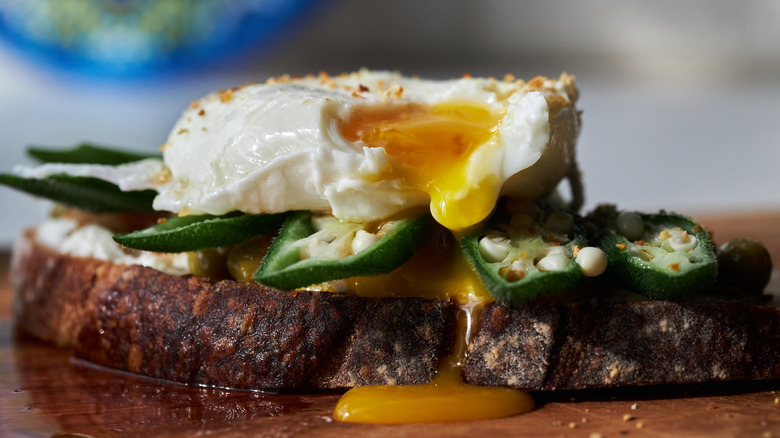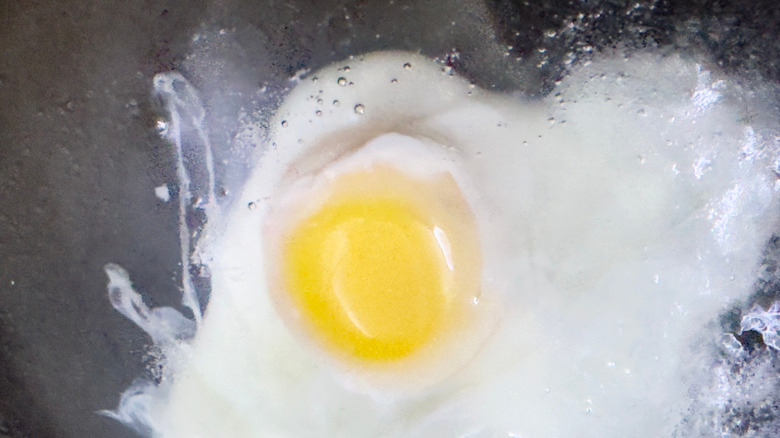Yes, You Can Poach Eggs Ahead Of Time — Here's How To Store Them
Level up your morning breakfast with meal prep that'll impress your loved ones. Quiche and both hard- and soft-boiled eggs are often prepped in advance, but a new bombshell has entered the villa: poached eggs. Notorious for being hard to make, but easy to impress, poached eggs get a bad rap as they are often considered a delicacy reserved for weekend brunch menus and professional chefs. But with this simple storage method, eggs Benedict or any meal that requires a perfect poached egg can be made in advance.
We spoke to eggxpert Nelson Serrano-Bahri, the Chef and Director of Innovation at The American Egg Board, to confirm the best way to store your perfectly poached eggs. "Poached eggs can be safely stored for up to two days in the refrigerator, as long as they're kept submerged in clean, cold water and the container is properly sealed," says Serrano-Bahri. When you're ready to use the poached eggs, "place the egg in water heated to about [140 to 150 degrees Fahrenheit] for 1–2 minutes, just enough to warm it through without cooking it further. This preserves that ideal runny yolk and soft white, " adds Serrano-Bahri. And, as with all eggs, make sure they are cooked to 160 degrees Fahrenheit.
Do you need vinegar for poached eggs?
Poaching eggs may seem intimidating for the novice chef. Luckily, there are so many tricks to poach eggs — from adding salt to the water, giving a quick swirl of the spoon to wrap the egg whites around, or even using a strainer to keep it in one piece. Some even recommend allowing the eggs to sit in vinegar for a few moments. The science behind it is simple: The pH drops when vinegar is added to water and denatures some of the protein, which helps the whites set faster and, in turn, hold their shape. This method also guarantees chef-quality poached eggs, free from excess or stringy whites.
To keep that perfect shape, Nelson Serrano-Bahri suggests "transferring eggs immediately to an ice bath to halt cooking and prevent overcooking the yolk." If you're not enjoying them right away, "after they're chilled, store them in a shallow container of cold water in the refrigerator. This helps maintain their moisture and delicate texture," says Serrano-Bahri.

